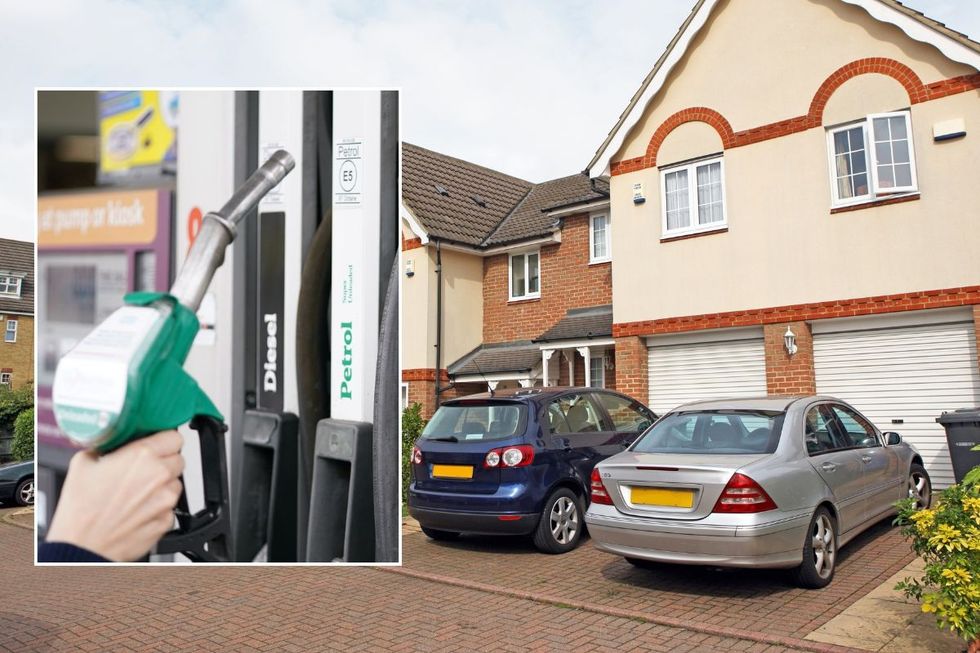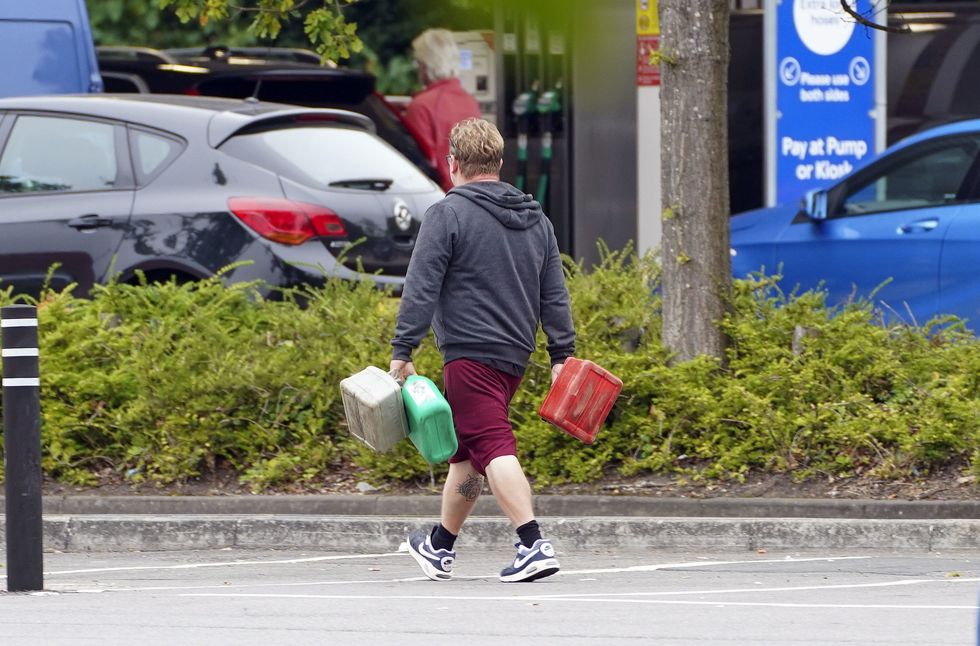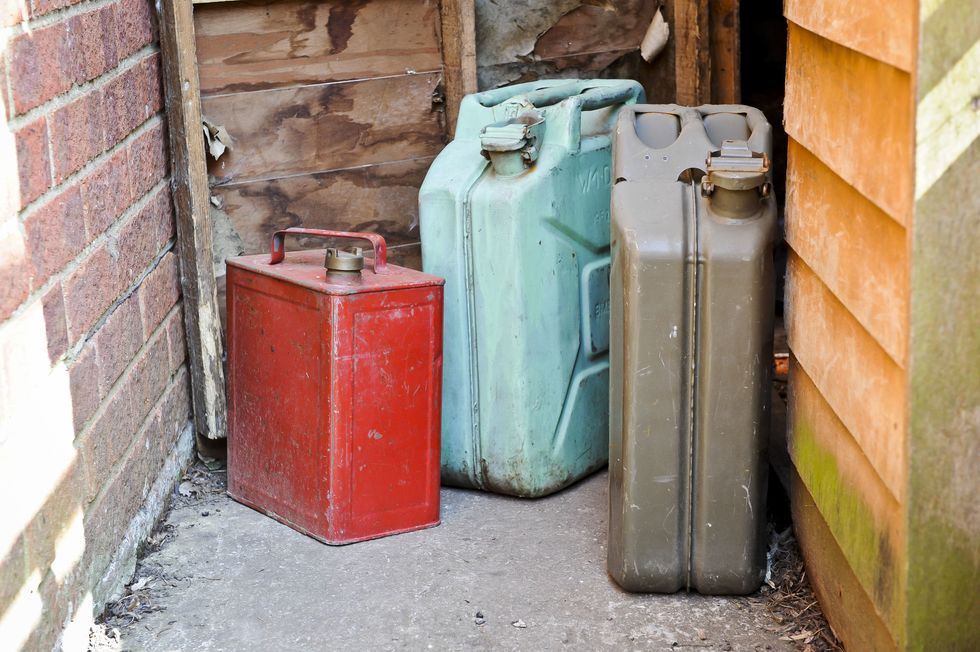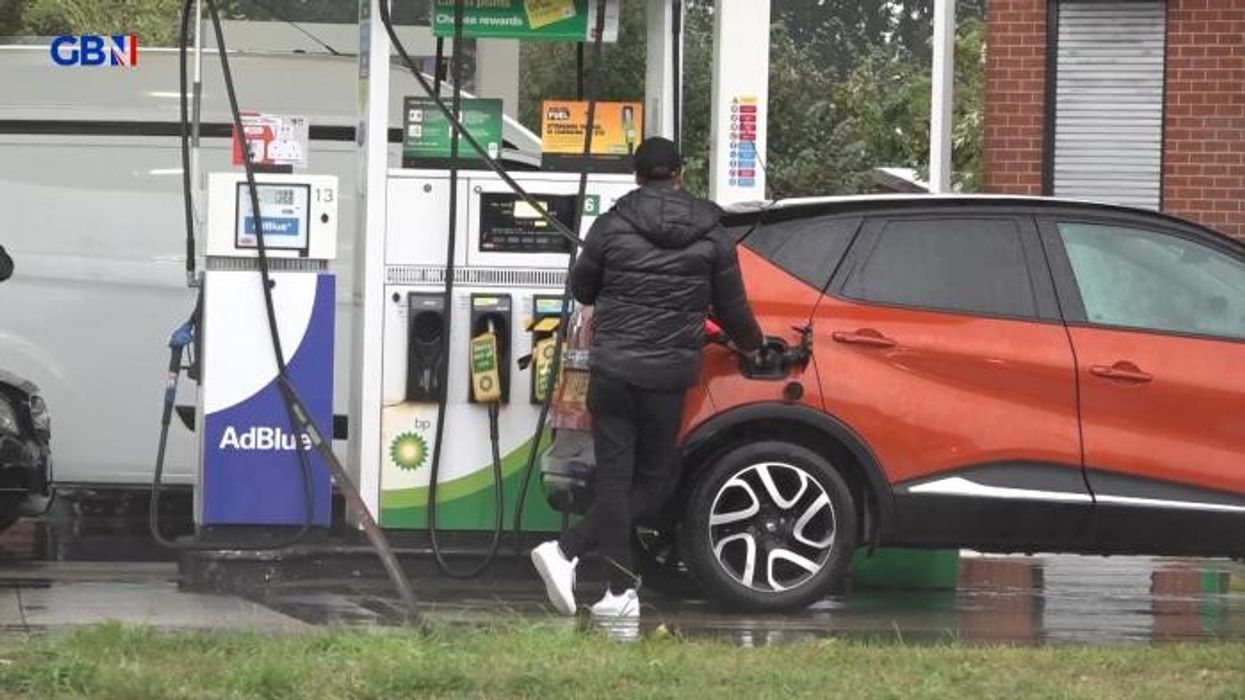Petrol and diesel car owners face huge consequences over 'extremely dangerous' fuel issue at home

Motorists must ensure they are being safe when storing fuel at home
Don't Miss
Most Read
Millions of car owners across the UK could face fines and experience issues with their car insurance policies if they own a petrol or diesel vehicle.
According to RAC Fuel Watch, drivers are facing costs of 133.75p per litre for petrol and 140.59p for diesel when visiting the average filling station.
While the RAC forecasts that prices will not change in the near future, experts are warning that escalating tensions in the Middle East could hike global oil prices.
Some drivers may be trying to get ahead of rising fuel prices by filling up an extra container while prices remain relatively low.
Do you have a story you'd like to share? Get in touch by emailing motoring@gbnews.uk

Homeowners could face massive consequences when storing fuel at home
|GETTY
Despite drivers having pure intentions to save money ahead of a potential price rise, experts are warning that the move could have massive consequences.
There are several strict rules when storing fuel at home, given the dangerous nature of individuals handling flammable materials.
Graham Conway, managing director at Select Van Leasing, said it was vitally important for motorists to understand the "risks and responsibilities" that come with storing fuel.
Drivers can store up to 30 litres of petrol at home without needing to declare the storage or apply for a licence.

Jerry cans are seen more frequently when fuel prices begin to rise
|PA
The containers need to be purpose-built for fuel, have proper closures and can be split across two 10-litre metal jerry cans and two five-litre plastic containers.
If a driver overfills their allotted 30 litres of fuel, they must notify their local Petroleum Enforcement Authority, even if it was an accident.
Britons could face enforcement action if they do not tell the relevant authorities, especially if the storage is discovered following a fire or insurance claim.
Conway added: "Petrol is one of the most flammable substances you can keep at home. Using the right containers and storing it safely can help prevent accidents and protect your insurance cover if anything goes wrong.
LATEST DEVELOPMENTS:
"It might be convenient to have spare fuel, but doing it wrong can end up costing far more than you save."
Insurers could argue that drivers were negligent if incorrectly-stored fuel causes damage to a vehicle, including fires, corrosion from leaks or even an explosion.
This could lead to a rejected claim, in addition to an invalidated policy or a reduced payout.
Drivers could land themselves in further hot water by misrepresenting how the vehicle is stored. Drivers could fall foul of this if they claim their vehicle is kept in a garage when there is improperly stored fuel nearby.

Jerry cans full of fuel should always be stored in a safe manner
|PA
Storing the fuel in an appropriate location is crucial, given its flammable nature. They should always remain in secure locations, like a shed or garage.
They should always be stored away from direct sunlight, open flames or electrical tools. Fuel must never be stored inside a home or in communal areas.
All containers must meet British Standards, which can be identified with markings such as "Petroleum Spirit - Highly Flammable".
Conway warned: "Containers without proper seals or safety vents can leak, expand or even explode in high heat. Never use water bottles, food containers, or makeshift jugs, as not only are these illegal, but they’re also extremely dangerous.











